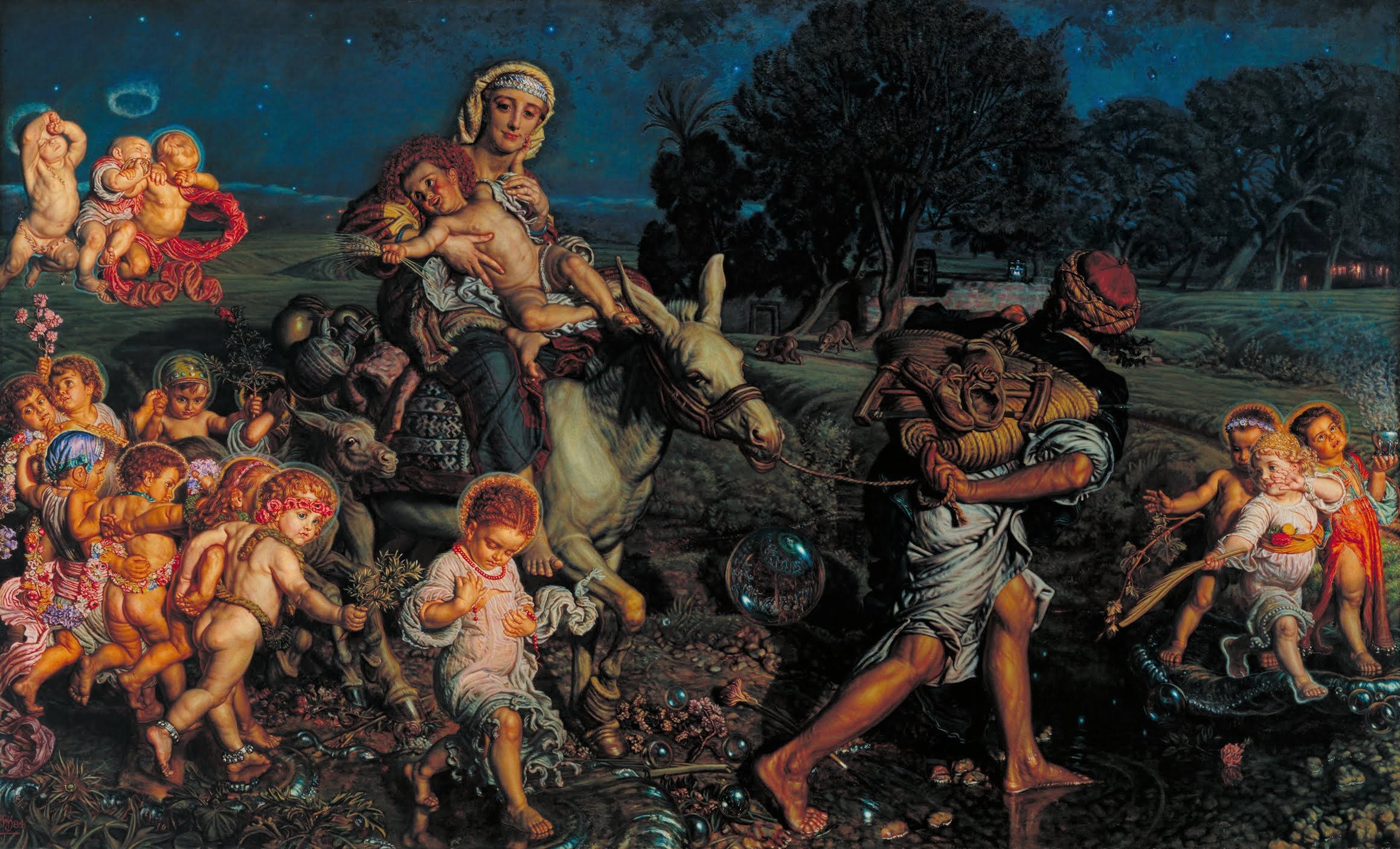The Octave Day of Christmas, Solemnity of the Blessed Virgin Mary, the Mother of God
Saturday, January 1, 2022Reading I: Nm 6:22-27
Responsorial Psalm: Ps 67:2-3, 5, 6, 8
Reading II: Gal 4:4-7
Gospel: Lk 2:16-21
Roman Catholic Sunday Homilies for your Spirituality. These may be used by priests for their homily, by the Basic Ecclesial Communities for their Bible Faith Sharing and by everybody who wants to reflect on the Word of God. I pray that His Word may truly be incarnated in your life.

By listening to those whom God sends, we are listening to God Himself. Today, Jesus rebuked the crowd for not listening to Him. He likened them to children in market places who whined at their playmates, "we played the flute for you, but you did not dance, we sang a dirge but you did not mourn." The other group did not listen to the other. Their game was no fun at all.
Thus, when John came fasting, the people said, He is possessed by a demon.’ When the Son of Man came feasting, the people said, ‘Look, he is a glutton and a drunkard, a friend of tax collectors and sinners.’ No matter what they did, people always opposed them.
Today, there are people who always criticize everything we do. Like the religious leaders of Israel who see nothing good in Jesus, we too may sometimes fall into this temptation. If we always see something bad in people or situations, we may find ourselves closing our ears to God Himself, who speaks to us through His messengers and through the events of our lives.
Fr. Joel R. Lasutaz, SSS
Image credit: istockphoto.com
 For my ordination to the priesthood 20 years ago, I chose the theme "To become a living sacrament of the Love of God." Through the years, I always ask myself, have I become a living sacrament of God’s love? Yes, I believe so, for it is not my own doing but God’s. It is not entirely my effort, but God’s grace first and foremost. God called me, formed me, ordained me and sent me on a mission because His "heart is moved with pity for the crowd" (Mt. 15:32). He made me a living sacrament of His love, as all of us are, so that the pity He feels for His people may become visible and tangible. I believe that through the assignments I have been given, God has responded to the needs of His people with whatever little I have.
For my ordination to the priesthood 20 years ago, I chose the theme "To become a living sacrament of the Love of God." Through the years, I always ask myself, have I become a living sacrament of God’s love? Yes, I believe so, for it is not my own doing but God’s. It is not entirely my effort, but God’s grace first and foremost. God called me, formed me, ordained me and sent me on a mission because His "heart is moved with pity for the crowd" (Mt. 15:32). He made me a living sacrament of His love, as all of us are, so that the pity He feels for His people may become visible and tangible. I believe that through the assignments I have been given, God has responded to the needs of His people with whatever little I have. I thank God for these grace-filled years of ministry, for being unconditionally patient with me and for loving me despite my weaknesses. I thank my brothers in the congregation, all my companions in my assignments, Fr. Roel, our Provincial Superior, and his council for your trust and confidence in me. I pray that, in the coming years of my priesthood, God may continue to provide for the hungry crowd through the 7 loaves and a few fish I can afford to offer.
As the Feeding of the Four Thousand was truly a miracle, my 20 years of priesthood is also a miracle, a miracle of God’s love that continues to feed His people in the Eucharist.
Fr. Joel R. Lasutaz, SSS
Image credit: catholic365.com

 |
| Zacchaeus' sycamore tree in Jericho |